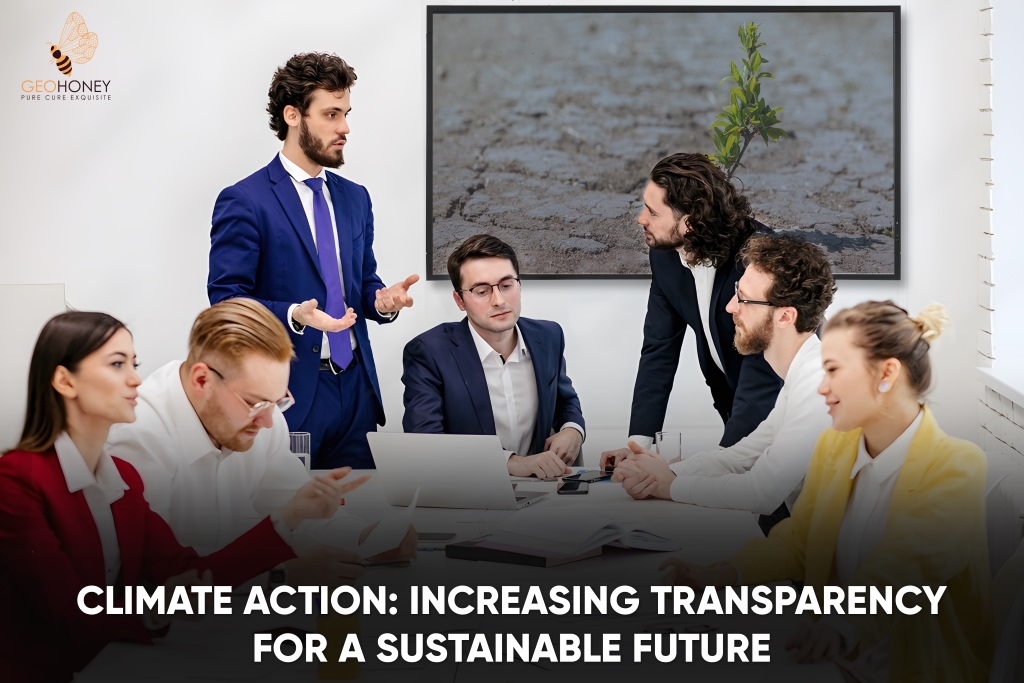- Tokyo: 18:13
- Singapore: 17:13
- Dubai: 13:13
- London: 09:13
- New York: 04:13
Increasing Transparency and Highlighting Climate Action

Last month, UN Climate Change coordinated the first-ever in-country technical analysis of a biennial update report (BUR) in collaboration with Israel.
Developing nations send biennial update reports to UN Climate Change, which include the status of a country's greenhouse gas emissions, information on how the country is reducing emissions, and information on support sought and received. Climate action reporting is critical for guaranteeing openness and promoting collaborative progress towards the Paris Agreement's objective of limiting global warming to 1.5 degrees Celsius above pre-industrial levels.
According to Xuehong Wang, Manager of the United Nations Climate Change Transparency Division, "this first-ever in-country technical analysis represents a significant and positive step towards a more solid and rigorous transparency process under the Convention and the Paris Agreement."
Some of Israel's mitigation actions include updating its climate action plan (formally known as its Nationally Determined Contribution) to aim for a 27 percent reduction in economy-wide emissions by 2030 compared to 2015; phasing out coal-powered electricity by 2026; and embracing clean and sustainable energy, primarily through investments in solar photovoltaic technology.
Naama Wald, Senior Coordinator for Energy and Climate Change at Israel's Ministry of Environmental Protection, expressed appreciation for international experts' input on the enhanced reporting requirements and potential improvements to the measurement, reporting, and verification (MRV) infrastructure.
At the Bonn Climate Change Conference, fifteen countries demonstrated their commitment to climate action.
Following the release of a summary report on this technical analysis, Israel will participate in the 15th facilitative sharing of views (FSV) workshop, which will take place at the end of this year during the UN Climate Change Conference (COP28).
The Facilitative Sharing of Views (FSV) seminars provide a venue for countries like Israel to display their success and reinforce their national frameworks, ambitious climate initiatives, and ETF preparations. During the 14th FSV workshop at the Bonn Climate Change Conference, fifteen countries profited from this experience.
Argentina, Belize, Brazil, Indonesia, Lesotho, Mauritius, Montenegro, Morocco, Nigeria, Republic of Korea, Republic of Moldova, Rwanda, Saint Lucia, South Africa, and Zimbabwe were among the countries that highlighted progress in reducing greenhouse gas emissions and shared ambitious mitigation goals.
Here are some of the action highlights from the FSV workshop in Bonn:
Many countries' emission reduction initiatives include the promotion of renewable energy sources. Examples include Montenegro's pledge to phase out coal and shut down its Pljevlja thermoelectric power plant by 2035; Saint Lucia's goal of generating 72 megawatts (MW) of renewable energy by 2030 through the promotion of solar and wind technologies; and Morocco's and Moldova's goals of increasing their share of electricity production from renewable sources by 15 and 23 percent, respectively, from 2020 to 2030.
Brazil and Zimbabwe are both focusing on their hydropower potential, with Brazil announcing an extra 8,835 MW of hydropower capacity (2018-2019) and Zimbabwe presenting its Batoka Gorge hydropower station project, which is estimated to generate 10,215 GWh of electricity per year.
Lesotho's usage of clean energy cookstoves leads to a 75% reduction in emissions between 2005 and 2017. Similarly, Rwanda intends to increase energy efficiency by providing new cookstoves to 80% of its rural population and 50% of its urban population by 2030.
In the Republic of Korea, efforts are underway to reduce emissions in the transportation sector, with a target of four million hybrid and three million electric vehicles by 2030; in South Africa, a green transport strategy includes plans for a rapid bus transit system, a shift from road to rail for freight transport, and the promotion of electric vehicles.
Several countries have taken major steps in the forestry and land-use sectors. Between 2014 and 2018, Argentina lowered CO2 equivalent emissions by more than 274 million tonnes by reducing deforestation, and Indonesia created sustainable management of nearly 84 million hectares of forest to combat deforestation and peat fires.
Similarly, Mauritius has committed to planting at least 100,000 trees each year until 2024, and Belize has emphasised the efficiency of its REDD+ strategy and Forestry Act, which have enabled the country to preserve its position as a net carbon sink. In Nigeria, high-potential mitigation efforts include afforestation, replanting, and reducing wood removals for energy production by local people.
Both the technical analysis and the FSV highlighted the importance of ongoing capacity-building and technical assistance in areas such as greenhouse gas inventory, mitigation action execution, and displaying of accomplishments gained. Many countries cited budgetary gaps, claiming that existing levels of assistance are insufficient to accomplish their climate change mitigation and adaptation goals.
Source: unfccc.int/news/



